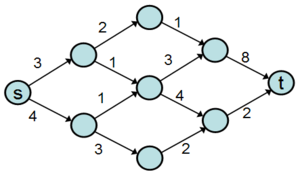Using Algorithms to Understand the Biases in Your Organization

“Using Algorithms to Understand the Biases in Your Organization“
Speaker: Logg, J. (Georgetown University)
Date: 6 December 2019
Speaker Session Preview
SMA hosted a speaker session presented by Dr. Jennifer Logg (Georgetown University) as a part of its SMA General Speaker Series. During her brief, Dr. Logg discussed how organizations can leverage algorithms (i.e., sequences of mathematical calculations) to improve their decision making accuracy and predictions. To begin, she explained why algorithms are such powerful tools for decision making. She stated that the accuracy of algorithms is far greater than that of humans, and despite organizations’ willingness to invest resources in algorithmic advice produced by big data, researchers know little about whether individuals are willing to listen to it. This motivated Dr. Logg to conduct her empirical research, which determined that average citizens rely more on identical advice when they think it comes from an algorithm than from other people. Paradoxically, a sample of national security professionals who made forecasts on a regular basis relied less on algorithmic advice than these average citizens did, and doing so negatively impacted their accuracy and predictions. Next, Dr. Logg discussed the recent backlash concerning algorithms that produce biased output. She argued that labeling algorithmic output as “algorithmic bias” and “machine bias” produces major consequences that will ultimately impair the quality of organizational decision-making. Moreover, she explained that because algorithms make decisions based off of input data, it is the input data that is often times biased rather than the algorithm itself. Consequently, people should not direct their backlash at the algorithms but rather the people making the decisions. Dr. Logg then outlined three consequences of blaming algorithms for biases. Decision makers 1) fail to acknowledge the bias present in the input data fed into the algorithm, 2) forego learning from “failure,” and 3) tend to revert back to human judgement, despite its lesser accuracy. To conclude, Dr. Logg explained how organizations can best leverage algorithms to improve their decision-making. She explained that organizations can use algorithms to purposely magnify potential biases in their decision-making with the goals of 1) identifying bias and 2) addressing the causes of bias. Organizations can also use the process of creating algorithms to clarify goals for decisions and predictions.
Speaker Session Audio Recording
To access an audio recording of the session, as well as Prof. Logg’s slides, please email Ms. Nicole Omundson (nomundson@nsiteam.com).
Comments